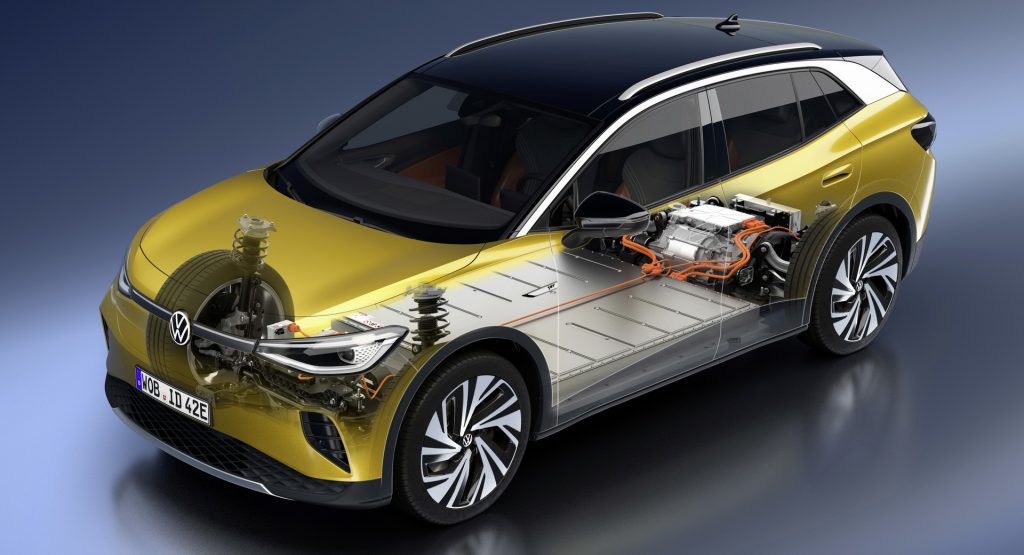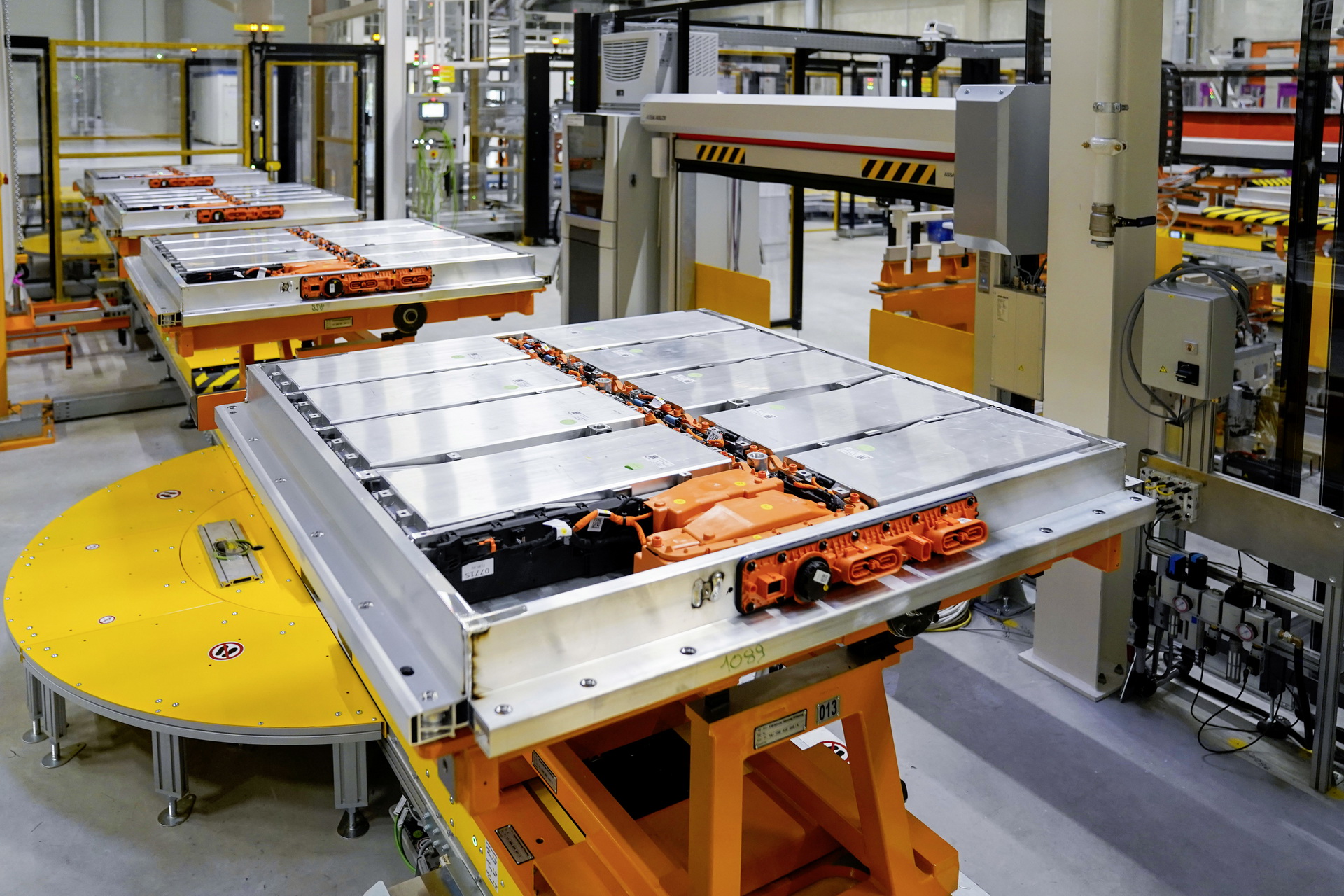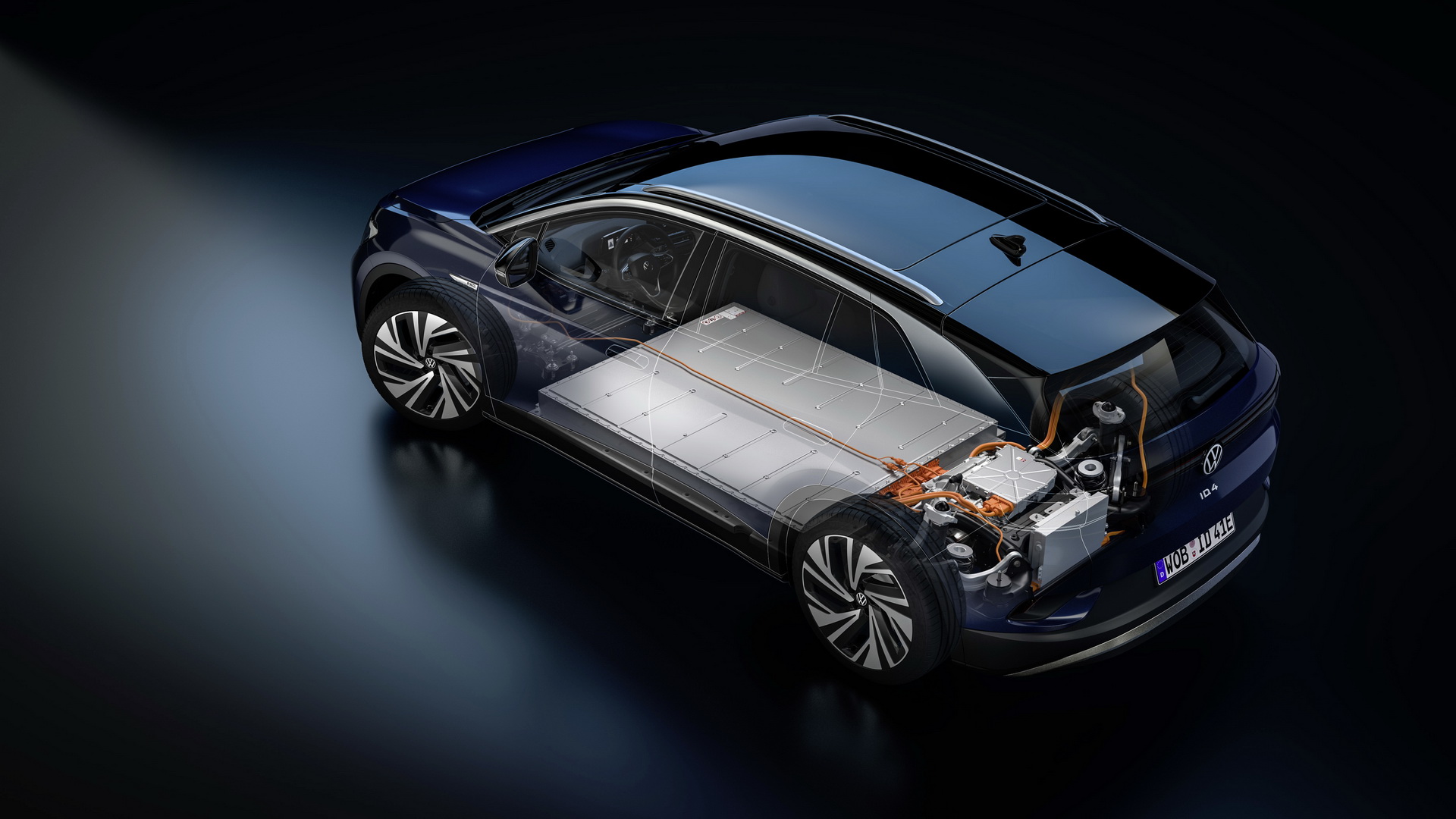VW’s Braunschweig factory has just launched its second production line, increasing the plant’s annual output to 600,000 battery packs per year.
The factory will be able to produce up to 500,000 battery packs a year for MEB-based electric vehicles, including the VW ID.3 and ID.4, as well as the Skoda Enyaq, as well as an additional 100,000 battery packs for the VW e-Up, SEAT Mii Electric, Skoda Citigo iV, and plug-in hybrid models such as the Golf GTE.
Read More: VW ID.4 GTX Coming Soon As Company Kicks Off Teaser Campaign
“The strong demand for attractive and affordable electric models based on the modular electric drive matrix has the lines of the first expansion stage working at full capacity, so we have fired up the second stage,” said Thomas Schmall, CEO of VW Group Components. “As such, the component is underpinning the Group’s unprecedented electric campaign.”
The next expansion plan for the Braunschweig plant will be about ramping up the production of hybrid battery systems, which will be increased from the 50,000 systems per year produced currently to up to 300,000 as of 2023.
Series production of the MEB batteries takes place at a new, largely fully automated manufacturing hall spread across more than 40,000 square meters after a 300-million-euro ($360 million) investment.
The production of the battery housing units employs the latest techniques in welding, adhesive, and sealing, and the units are then assembled together with the cell modules and a control unit to form the actual battery pack. In addition, VW has installed several in-line, air-tightness, and end-of-line testbeds to guarantee a uniformly high quality of its battery systems.






